|
As I write this, the weather is gray and cold. It has been raining for what feels like forever, though more accurately it’s been about a week. I miss the summer. I miss a lot of things, and people, when October rolls around. It seems to be a month made for melancholy. Perhaps it is because two of my grandparents died during separate Octobers in my childhood. This month has always been a time of missing them, remembering the past, and grieving. I was eight the October my paternal grandmother died, and she was the dearest person in the world to me. Grief is a word we use to describe the feeling of missing someone or something after they are lost to us forever. We grieve days that are behind us, relationships that never grew, opportunities that we missed. But most of all, we grieve persons. Death seems to be the end of all that is, the end of all who is. It is unbreakable, unbreachable, unending. As Christians, we do not think in those terms because they have been proven false. Jesus Christ, as well as Mother Church, tells us that death is not the end. It is an act of hope to believe this. Death only appears to be final and absolute and unknowable. Through Christ’s resurrection, God has revealed that death is not our final end. It is often hard for us to trust what happens next because we simply cannot know it with the certitude with which we know this world. The Church speaks of the Four Last Things, with Death being the first or entryway to the other three: Judgment, Heaven, and Hell. But that is another topic. What about those of us who remain on earth while a loved one has gone ahead? What do we do? How do we live with loss? C.S. Lewis told a friend who had recently lost his beloved wife, “Sad you must be at present. You can’t develop a false sense of a duty to cling to sadness if– and when, for nature will not preserve any psychological state forever– sadness begins to vanish” (A Severe Mercy, Sheldon Vanauken). Of course we feel sad as a result of someone’s death. A loved one who brought joy and lightness into our hearts has gone, and our sadness is a natural response. There is no Christian commandment forbidding sadness. It is an emotion, which is neither good nor evil. Emotions just are. They come and go, washing over us. If we choose to take them too deeply within ourselves, however, emotions can become dangerous. We can drown in grief, for example, if we make it our cosmology. And the Christian is commanded to have the same mind as Jesus Christ. He sees the world with the eyes of resurrected love. While we may not always be able to choose our emotions, we can choose our attitude and our response to them. Joy, even in the midst of sadness, “comes of being loved” wrote Pope Benedict XVI in Deus Caritas Est. And love has conquered death in a singular act. Jesus, the Christ, the Second Person of the Trinitarian Godhead, the Son of the Father, died on a cross to redeem us from an unredeemable bondage because he loved us and desired us to be with him. It is to that reality that we must orient ourselves. Grief can too easily turn us inward. Like a black hole, it can devour everything surrounding it so that it is the only thing left. Love perpetually calls us out of ourselves, and asks us to give ourselves as a gift, even and especially in the hard times. I do not doubt that God’s heart broke when humanity sinned the first time, and breaks again at every subsequent sin. But God did not become consumed by grief at our fall. God is love, and love gives of itself to the beloved unceasingly. Therefore, God acted in order to redeem mankind. I want to tell you more about the process of grief, of going through the stages of denial, anger, bargaining, depression and, finally, of reaching acceptance, but I don’t know your process. I don’t know your specific loss, which we all must face at various times of our lives. That’s okay. We can hold a space for each other as we go through the process of grieving. We can let each other remember and smile and laugh and cry and long for the missing one, repeating this process as necessary. As a recent homily reminded me, our God does not tolerate idols in our lives. Our grief cannot consume our love, or else it makes a golden calf of our beloved. May our love of God, united with the love our dearly departed, orient us to the loving heart of the Father. May we know that this present sadness is not the end. Question for Reflection: Have you grieved the loss of something in your own life? How has your faith impacted your experience of grief?
0 Comments
Where has the time gone? I’ve been asking myself this question over and over again throughout the past few days. Having just graduated from college, I find it quite surreal that my life is no longer dominated by the academic schedule. I almost feel as if I am a new person, having joined the “real world” as a young adult. It is exciting to have entered a new chapter in my life and exercise control over fulfilling my desires and goals in life. During major times of transition, I think it is beneficial to take the time to seriously reflect on all who have supported me along the way and up to where I am now: typing this after a day’s work at the office in a new city. As senior year drew to a close, I recalled moments not only of joy but also of sadness and difficulty. Remembering who it was that remained at my side during those moments of formation and struggle, and valuing their friendship and presence in my life, causes me to thank God for those college experiences. Those relationships caused me to glimpse the faithfulness and love of God. Sometimes, I can’t help but wonder whom I have touched with my own presence or friendship. As a human being, I am imperfect. I experience weakness. I worry. I have doubts and deficiencies. While these are important to acknowledge, I cannot waste time dwelling on them. In my shortcomings, my relationships with others may be strained, but there is also an opportunity to grow even closer to one another. Similarly, one’s waywardness is always ready to be met with God’s faithfulness: “If we are unfaithful he remains faithful, for he cannot deny himself” (2 Tim 2:13). We are called to model God’s faithfulness in our own friendships. The authenticity of such a relationship is made plain especially in times of difficulty. I like to recall Job’s friends who, upon seeing his experience of great loss, “sat down upon the ground with him seven days and seven nights, but none of them spoke a word to him; for they saw how great was his suffering” (Job 2:13). Similarly, “Two are better than one… If the one falls, the other will help the fallen one. But woe to the solitary person! If that one should fall, there is no other to help” (Eccl 4:9). There were many times throughout college that people “sat down upon the ground” with me and many times I did the same for others. I truly saw how “two are better than one,”—how we need one another to help us when we fall. Talking to my peers as graduation approached, I heard and shared thoughts of both excitement and apprehension. Graduation sometimes resembles the “real world” knocking on one’s door with a collection call. I agreed with this somber view until I attended a retreat where I heard it said that the “real world” touted by society was nothing more than a deprivation of what readily exists for the faithful: the Church. At every moment, God walks with us. He readily comforts us, listens to us, calls to us, and freely and completely offers His perfect love to us. While the world we live in can be unforgiving, rough, and fatiguing, let us recall Who walks beside us and never fails us. We are called to imitate this unfailing love and walk beside our brothers and sisters. Our lives are spent in pilgrimage seeking God. Along the way, we often encounter others who are seeking the same end. Sharing this pursuit, then, becomes a shared labor of faithfulness and strength. We are weak on our own, but together, as we experience in the Church, strength and comfort are found to help us journey on. As one of my friends reflected, “[T]he journey to heaven is not a solo trek. You seek to bring everyone with you. If one person falls, you travel to him or her, and help them get up, and you carry along together towards the destination. This is what God has entrusted us to do, to reveal such love as His love.” God is faithful, especially in times of great change. As I begin this new chapter of my life, I strive to reveal the faithful love of God to those I encounter. May we, at every moment, endeavor to do the same! Question for Reflection: How do you turn to God in times of transition? In high school I had a teacher who kept a cute frog sticker on the ceiling above the doorway to and from the classroom. Her favorite saying was, “FROG it!” F-R-O-G stood for, “Fully Rely On God.” Whenever someone expressed anxiety, sadness, or some other emotion, our teacher would tell us to FROG it. Her ceiling sticker was a reminder for us to place our burdens in God’s hands and trust that he would guide us through our triumphs and tribulations. Oh how quickly we stumble and forget this trust in God’s plan for us. The last semester of my senior year of college, I had so much anxiety over finding a job. No matter what my family or friends said to encourage me, I worried 24/7. At one point, I even made myself sick by not getting enough sleep over several days. My mother told me to pray whenever I felt anxious, and to leave my future in God’s control. While I still thought constantly about the vast openness my future held after graduation, reminding myself that God had my back was reassuring. Over spring break, I visited an organization I had interned with previously. They were looking to fill a position fitting my interests and area of study. I was called a few weeks later and offered the position. Six years. That’s at least how long I can think back to decisions and opportunities God placed in my life that laid the foundation for my first job. When I reflect on this incredible plan, I can only be filled with wonder and thankfulness. Being patient for God’s timing is extraordinarily difficult, but well worth the wait. So often we want what we desire immediately, not later. Sometimes we can be so stubborn and get in the way of God’s timing by choosing the wrong decision, acting too quickly, telling God “no,” and even forgetting God at times. God uses the time of waiting to stretch our faith in him. We develop patience, a fruit of the Holy Spirit, through practice and under trial (CCC 1832). We can begin to feel satisfied as we practice this virtue. If God followed our timing, we wouldn’t grow and develop in our relationship with God or with others. In the book of Exodus, we learn how long the Israelites had to wait for God to lead them to the Promised Land. God led the Israelites on the longer journey out of Egypt to the Promised Land because they were not yet ready to place their full trust in him or his plan (Exodus 13:17-18). God also knows that if we knew how long or what it takes to reach the end, we may tire or fall from his path for us. In Ecclesiastes 3:1, we learn there is a time for everything. Seeing others around us experiencing fruitfulness while we are in drought should not cause jealousy. We must remember that these individuals may have already experienced growth or difficult stages that we currently face if we are to receive the bounty. These words from Psalm 37 remind me to place my trust in God and in his desire to fulfill my heart’s desires: “Find your delight in the Lord who will give you your heart’s desire. Commit your way to the Lord; trust in him and he will act. And make your righteousness shine like the dawn, your justice like noonday. Be still before the Lord; wait for him. Do not be provoked by the prosperous, nor by malicious schemers.” - Psalm 37:4-7 Our jobs are not to decipher when what we seek will come to fruition. Our jobs are to continue praying and seeking the result, trusting in God’s plan and asking him for the strength to participate in it. We mustn’t give up. God works things out in his own perfect timing. “He descended into Hell” is probably one of the more powerful parts of the Apostles Creed. And yet the Church has allotted this odd phrase to one of the holiest days of the liturgical year, Holy Saturday (CCC 631-637). On Good Friday we gaze upon the broken body of Christ crucified, but Holy Saturday is the day where God seems absent— He is asleep in the tomb and to the world it seemed He would never rise to preach, heal, correct, bless, perform miracles, or teach again. To Christ’s disciples, the darkness cast over the earth at their Master’s execution continued to overshadow their lives in a gloomy pall as they now hid in fear of the Jews in the Upper Room where they had shared the Last Supper. Now that Jesus had died, they reasoned, it would only be a matter of time until the world forgot about Him. The question remained to be answered: “Now what?”
Growing up, I echoed this puzzlement every Holy Saturday as I sat at home during the Easter Break. Good Friday had always been an emotionally draining day (and when it was time to fast, a physically rough time as well), and the time spent in between Friday and Sunday was meant to reflect on our Lord’s Passion, if not to nap sometime prior to the six-hour Easter vigil that needed to be prepared for. More often than not, the house remained quiet, and the fact that there was no daily Mass being celebrated anywhere on the planet that day gave a particular feeling of emptiness similar to what the disciples must have experienced. Still, there was something strangely refreshing about the stillness, if not a result of disconnecting from all technology, entertainment, socialization, and the stresses of daily life. That emptiness could and would only be filled with the singing of the Exsultet, the first “Alleluia” uttered on Easter morning, and the knowledge that Christ had forever conquered death. Between the sadness of the Cross and the joy of Easter, from the bewilderment of the disciples to Mary’s great faith, we now draw courage from the latter’s example to face the future with faithful hope, patience, love, and interior calm. Whereas it was under the cover of darkness that the disciples abandoned the Lord that fateful night in the garden, it is also in darkness that the Church gathers in vigilant expectation to celebrate His triumphant rising from the dead. We are also reminded of those who have been in darkness since the Fall awaiting the opening of Heaven. It wasn’t until Christ descended into the darkness inhabited by those cut off from God that they were restored to their eternal inheritance. We now take part in their rejoicing and endeavor to form our lives to make ourselves worthy to share eternal life. On Holy Saturday we must not become lost in the preparations for Easter and forget to reflect on the day’s significance. It is necessary that we take the proper time to grieve, reflect on, and contemplate the thoughts and emotions of Mary and the disciples as they pondered the sudden death of the Lord. While we rest in the hope of the Easter Resurrection, let us not neglect to ponder the pain and anguish of those who were standing at the foot of the Cross or hiding in the Upper Room. After all, the descent into Hell precedes the rising from the dead (CCC 638). Thomas Wong is an undergraduate at The Catholic University of America in Washington, D.C. I carry wounds. I carry scars. I carry pains. I carry all of these pieces of sadness, loneliness, challenge, and despair inside me. Some wounds are visible and others are buried deep inside my heart. I have been a part of causing wounds and others have inflicted me with wounds. I have healed from and I have ignored my wounds. I carry wounds but I also am learning how to ask for help in binding them.
I recently attended a retreat that focused on grace and the “wounded healer.” Throughout the time I had the opportunity to reflect on where I am on this life journey and what has happened, is happening, or will happen in the future. Immediately, I thought of Henri Nouwen’s book Wounded Healer and how the paradox of someone who is broken reveals the mystery of discovering how to heal. The retreat led me to a deeper understanding of the interior life, God lives in me and has been broken, but he also wishes to heal and be healed. Nouwen writes, “The man who articulates the movements of his inner life, who can give names to his varied experiences, need no longer be a victim of himself, but is able slowly and consistently to remove the obstacles that prevent the spirit from entering. He is able to create space for Him who heart is greater than his, whose eyes see more than his, and whose hands can heal more than his.” He shows how naming the wounds we experience leads to the natural desire to open up to the grace of the Holy Spirit. Jesus invites us in to create that space. We see how he was an example of healing and woundedness in his ministry, being vulnerable and patient, sacrificing his life in love. We see it in his state of being God and Man, his inviting the twelve, his working miracles for the visibly and the spiritually sick, and even in his silence when he knew what was to come on the cross. Working in ministry I find that aiding in the healing of others comes more easily than letting myself be healed. This theme showed me how difficult it is to expose weaknesses and be vulnerable. Sometimes the simple acknowledgement of a sin or experience is overbearing. In the retreat setting I opened myself up to engage with my wounds and seek guidance in understanding what I will need to heal. I also had to recognize that the healing might not be a quick process. Words from Helen Keller, who dealt with a physical wound of blindness, showed me the wound’s potential to foster strength and growth. She writes, “Face your deficiencies and acknowledge them; but do not let them master you. Let them teach you patience, sweetness, insight.” We all carry wounds. In some form we react to them, hide them, or learn to mend them. One of the prayer services that concluded the retreat involved reflection on the sacrament of Anointing of the Sick. The leader spoke about how we do not hear about this sacrament in the way we do the number of joyful sacraments of First Communion, Confirmation, or Matrimony. In many ways it shows how even those who believe in the power of healing find it difficult to expose their wounds. Showing our wounds reveals a part of us that we are not proud of or afraid of knowing. How different would our world be if it seemed more acceptable to open up and to anoint each other in our physical and spiritual sicknesses! In so many ways it is a privilege to be a part of that sacramental healing, to listen and allow someone to share with you what he or she is going through, or to share something yourself. When we engage with the grace that works in our lives and look at our wounds we see how the two converge. Grace is there to help comfort and guide us in the Holy Spirit. Acknowledging the work of grace and receiving its gifts help us to recognize how our wounds have the ability to make us stronger. Pope Francis spoke about embracing the wounds of Christ in others and how it transforms both them and us. “We need to touch Jesus' wounds, caress Jesus' wounds, bind them with tenderness; we must kiss Jesus' wounds, literally. Just think: what happened to St. Francis, when he embraced the leper? The same thing that happened to Thomas (the apostle): his life changed”. Our lives change when we encounter and embrace Jesus, others, and ourselves in our state of being wounded. Like the sacrament of healing, the visible act of carrying our woundedness and asking for healing leads us to love and receive better. Sophie Jacobucci serves as a second-year Echo Apprentice in the Diocese of Manchester, NH. For the past few months, we have ended the month with the staff of the Catholic Apostolate Center sharing with you words of joy and where it is that we find joy in our faith. This month we invite you to read Pope Francis’ thoughts on joy and faith which he shared in his Palm Sunday Homily, March 24th 2013.
“Jesus enters Jerusalem. The crowd of disciples accompanies him in festive mood, their garments are stretched out before him, there is talk of the miracles he has accomplished, and loud praises are heard: “Blessed is the King who comes in the name of the Lord. Peace in heaven and glory in the highest!” (Lk 19:38). Crowds, celebrating, praise, blessing, peace: joy fills the air. Jesus has awakened great hopes, especially in the hearts of the simple, the humble, the poor, the forgotten, those who do not matter in the eyes of the world. He understands human sufferings, he has shown the face of God’s mercy, and he has bent down to heal body and soul. This is Jesus. This is his heart which looks to all of us, to our sicknesses, to our sins. The love of Jesus is great. And thus he enters Jerusalem, with this love, and looks at us. It is a beautiful scene, full of light - the light of the love of Jesus, the love of his heart - of joy, of celebration. At the beginning of Mass, we too repeated it. We waved our palms, our olive branches. We too welcomed Jesus; we too expressed our joy at accompanying him, at knowing him to be close, present in us and among us as a friend, a brother, and also as a King: that is, a shining beacon for our lives. Jesus is God, but he lowered himself to walk with us. He is our friend, our brother. He illumines our path here. And in this way we have welcomed him today. And here the first word that I wish to say to you: joy! Do not be men and women of sadness: a Christian can never be sad! Never give way to discouragement! Ours is not a joy born of having many possessions, but from having encountered a Person: Jesus, in our midst; it is born from knowing that with him we are never alone, even at difficult moments, even when our life’s journey comes up against problems and obstacles that seem insurmountable, and there are so many of them! And in this moment the enemy, the devil, comes, often disguised as an angel, and slyly speaks his word to us. Do not listen to him! Let us follow Jesus! We accompany, we follow Jesus, but above all we know that he accompanies us and carries us on his shoulders. This is our joy, this is the hope that we must bring to this world. Please do not let yourselves be robbed of hope! Do not let hope be stolen! The hope that Jesus gives us.” |
Details
Archives
July 2024
Categories
All
|
About |
Media |
© COPYRIGHT 2024 | ALL RIGHTS RESERVED

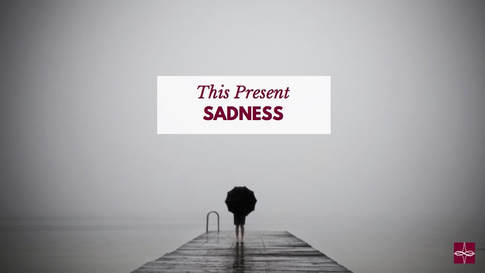

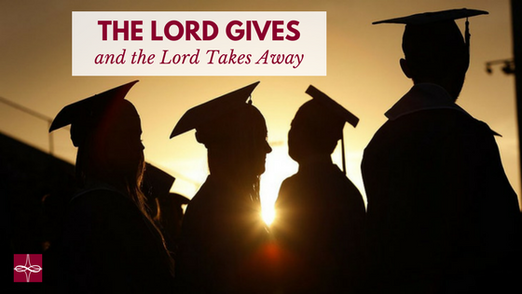

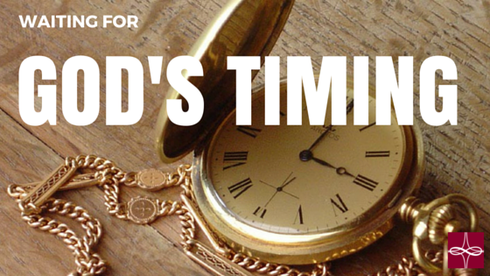

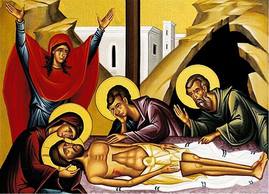
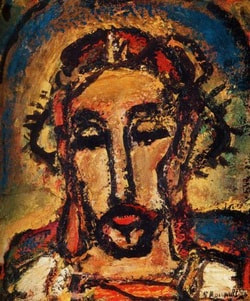
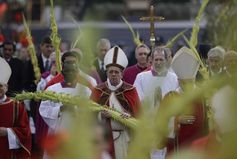
 RSS Feed
RSS Feed